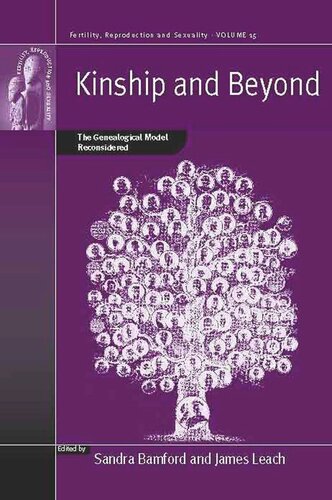

Most ebook files are in PDF format, so you can easily read them using various software such as Foxit Reader or directly on the Google Chrome browser.
Some ebook files are released by publishers in other formats such as .awz, .mobi, .epub, .fb2, etc. You may need to install specific software to read these formats on mobile/PC, such as Calibre.
Please read the tutorial at this link: https://ebookbell.com/faq
We offer FREE conversion to the popular formats you request; however, this may take some time. Therefore, right after payment, please email us, and we will try to provide the service as quickly as possible.
For some exceptional file formats or broken links (if any), please refrain from opening any disputes. Instead, email us first, and we will try to assist within a maximum of 6 hours.
EbookBell Team

4.1
30 reviewsThe genealogical model has a long-standing history in Western thought. The contributors to this volume consider the ways in which assumptions about the genealogical model—in particular, ideas concerning sequence, essence, and transmission—structure other modes of practice and knowledge-making in domains well beyond what is normally labeled “kinship.” The detailed ethnographic work and analysis included in this text explores how these assumptions have been built into our understandings of race, personhood, ethnicity, property relations, and the relationship between human beings and non-human species. The authors explore the influences of the genealogical model of kinship in wider social theory and examine anthropology’s ability to provide a unique framework capable of bridging the “social” and “natural” sciences. In doing so, this volume brings fresh new perspectives to bear on contemporary theories concerning biotechnology and its effect upon social life.